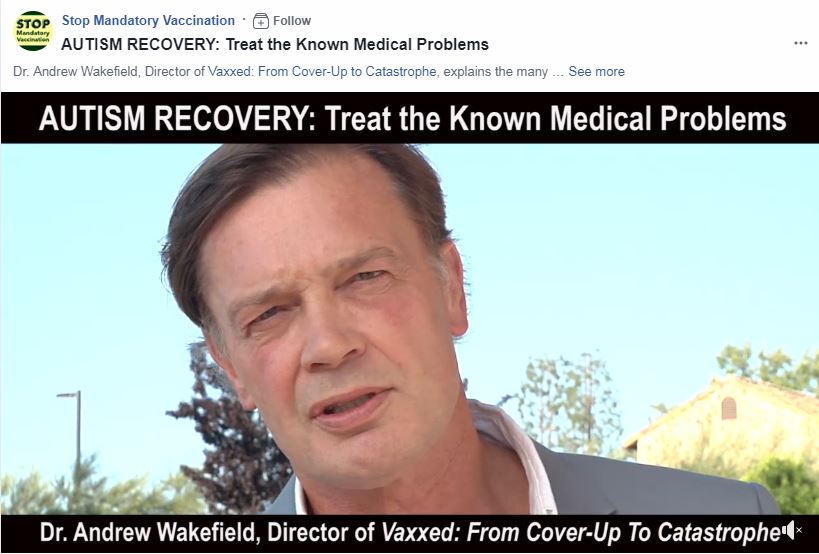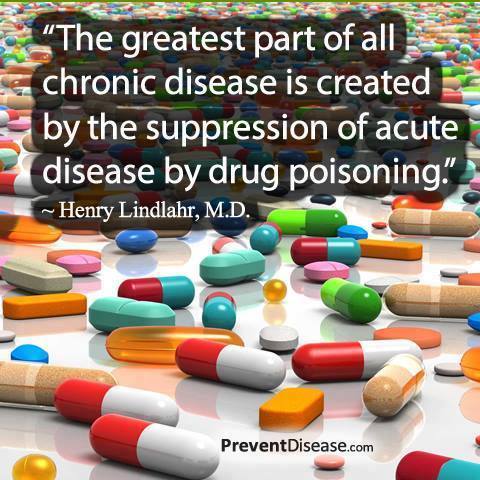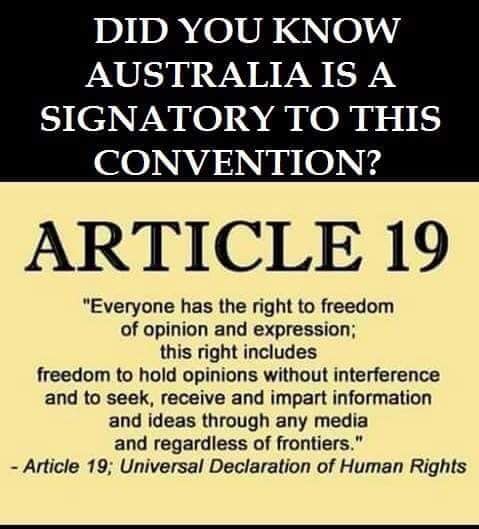
Autism Recovery Strategy
I have been asked how you help someone recover from vaccine induced autism damage. Here is one doctor’s take on it.

Tom's Blog on Life and Livingness

Autism Recovery Strategy
I have been asked how you help someone recover from vaccine induced autism damage. Here is one doctor’s take on it.
A post copied from Katie O’Meara Orrico Benjamin Easton: I am sick and tired of the “I believe every doctor and pharmacist” I hear. Show me the facts! I take zero medicine, for over 21 years, and I don’t get sick, EVER! This is a very thoughtful argument from a doctor with immense experience. Read it!
Was removed from facecrack. From Ray Andrews, MD. March 22, 2019
“I am running into increasing numbers of patients/parents who decline to receive vaccinations. I don’t call them “anti-vaxxers” because that is the most immature way I can imagine to refer to another human being with an opinion, whether I consider it informed or not. Name-calling is what people do in politics when they don’t have an intelligent response to an opposing party’s argument or viewpoint. This is supposed to be science, not politics.
Based on my experience, those who choose not to vaccinate care just as much about their children as you and I do. But they are looking for information. They no longer consider the AAP and the CDC as unbiased sources of information because the former has ties to the drug industry and the latter actually owns vaccine patents. These parents want me to show them long-term safety studies, which I am unable to find. They are bothered by the ingredient lists of vaccines, knowing that there are EPA-listed toxins in many of them. Some don’t like knowing that cells and DNA from aborted fetuses as well as animals are used in vaccine production. Some demand true double-blind, randomized, placebo-controlled (using saline controls, not adjuvants) trials proving efficacy, which simply do not exist, even though we keep telling everyone that this is the gold standard in medicine. Some ask why—if informed consent exists for every other procedure in medicine—doctors and governments are trying to force vaccination on them, throwing informed consent (a legal right, I was taught) out the window. Some make the argument that, if vaccines are so effective, the vaccinated shouldn’t worry about getting sick from the unvaccinated. And they ask me for scientific proof of the theory of herd immunity. I don’t remember being shown any evidence of this in medical school. It was simply taught as a self-evident fact. But my patients don’t accept “facts” anymore, not without seeing some proof.
So, when I receive all of these communications from different organizations telling me how I am supposed to combat the growing threat of vaccine deniers, I feel like a straw man because these communications never present actual evidence to respond to the questions of these parents. They’re just talking points, empty claims, and official pronouncements.
In conclusion, some of my patients vaccinate, and some don’t. I respect both kinds. They are both intelligent and care for their children. Last I checked, the Hippocratic oath doesn’t require me to insult people with whom I don’t agree. I present what evidence I can find, and let them choose based on their values, not mine. Maybe that’s not allowed anymore. Maybe I’m supposed to kick them out of my practice if they disagree with me. Maybe they should be kicked out of school. Out of the country, even. If that’s the America of the future, that’s not a country I would want to live in.”


Worth thinking about…
This isn’t going to change anyone’s mind but it may be of value in helping somone voice their thoughts.
If I held out a stick and said, “This is a stick.” few would disagree.
If I held out a rock and said, “This is a rock.” likewise, few would disagree.
If I held out a stick and said, “This is a rock.” most people would form the opinion that I was nuts. Because I was disagreeing with their reality. That has been the test of sanity these many years past. If you disagree with most people’s reality you are classed as insane. And reality is basically agreement.
A stick is not a rock. A rock is not a stick. Claiming a stick is a rock or a rock is stick is stating a lie. It is an insanity.
The Creator (or, if you don’t believe that, evolution) gave us two genders and only two genders. We were given them for a reason. Many reasons in fact. It takes one of each to make a pair. Pairs mate and we have successive generations. The species survives. It’s been very simple and has worked for man and beast since the game began.
Saying different does not change natural laws. Doing different does not change natural laws. If we had nothing but men pairing with men and women pairing with women the race would die out in a single generation. Therefore that is unworkable as an operating basis. Despite the loud protestations to the contrary of those who would violate the natural laws.
There is a legal principle that ignorance of the law is no defence. Ignorance offers no protection. That may very well have come from observation of natural laws. You can be ignorant of gravity and still fall to your death.


I posted a comment recently on FB to which someone asked my opinion, was it hopeless?
This was the guts of my response. I have added slightly to it.
I am currently asking myself the all important four word question (as well as discussing it with my daughter) “What will it take?”
To get vaccines from poisoning our children.
To get fluoride out of the water.
To stop destroying farmland for coal.
To stop destroying our aquifers for gas.
To stop the sell off of our farms, electricity and other assets to foreign nationals.
All of which I consider insane.
All these non-optimum conditions occur because someone gains from them.
The conclusion I have come to is nothing happens by chance.
Everything happens because it benefits someone – follow the money.
JFK said “There are no accidents in politics.”
I can see three reasons that politicians vote for these insanities. All require that they do not look for themselves.
I. They have been fed a steady stream of lies so they believe them.
Since it is hard to convince a man to change his mind when his livelihood depends on him maintaining his existing point of view and donations to political parties by corporations are allowed (let alone the guy who sold the port of Darwin to the Chinese is now employed by that company at a salary of $800,000 a year) then I do not believe putting the facts in front of our elected representatives will make much difference.
I beieve it will take educating and enlightening a sufficiently large enough group of active people so that the demand to change will overwhelming. That can take a long or a little time, depending on how effective we are at communicating the necessity to upset the status quo – which most are reluctant to embrace.
So anything you can do to “foward the message” in the way of reposting what I post, signing up for my newsletter (www.tlat.net) so you have those on file and can refer to them, seaching my blog (www.tomgrimshaw.com/tomsblog) or just engaging others in conversation adds to the movement.

If we do not stand up for our rights and defend our right to exercise them they will surely be eroded and we will be left without them.